Health and Wellness
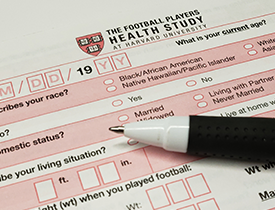
Health and Wellness Initiatives
| First Health and Wellness Questionnaire (Q1) | Our First Health and Wellness Questionnaire (Q1) was made available to all former NFL players in early 2015 and remains open to participation today. The goal of this questionnaire is to collect information on the total group, or cohort, of former professional NFL players to better understand the health impact of a professional football career. The questionnaire collects information on demographic characteristics, health conditions, physical function and ability, and mental wellbeing. To date, more than 4700 former players have participated, making the Football Players Health Study the largest study of living former players. This questionnaire is advancing our overall understanding of player health while also providing important baseline data for the development of further research. The first step for our study team to consider your participation is to fill out our contact form. |
| Health Check-Ins & Lifecourse Questionnaires | Health Check-Ins Former players will be invited to complete a general health assessment every two years after completing Q1. The questionnaire collects information on demographic characteristics, health conditions, physical function and ability, and mental wellbeing. Two years later they will be invited to do this again after completing the first health check-in. These health check-ins will help us examine how player health changes over time. The first step for our study team to consider your participation is to fill out our contact form. Lifecourse Questionnaires These questionnaires will investigate how additional football-related and other lifestyle risk factors impact health. It includes a variety of questions relating to a player’s health, playing history, habits, as well as their perspectives on their lives and the world. Former player can complete these questionnaires after finishing Q1. The first step for our study team to consider your participation is to fill out our contact form. |
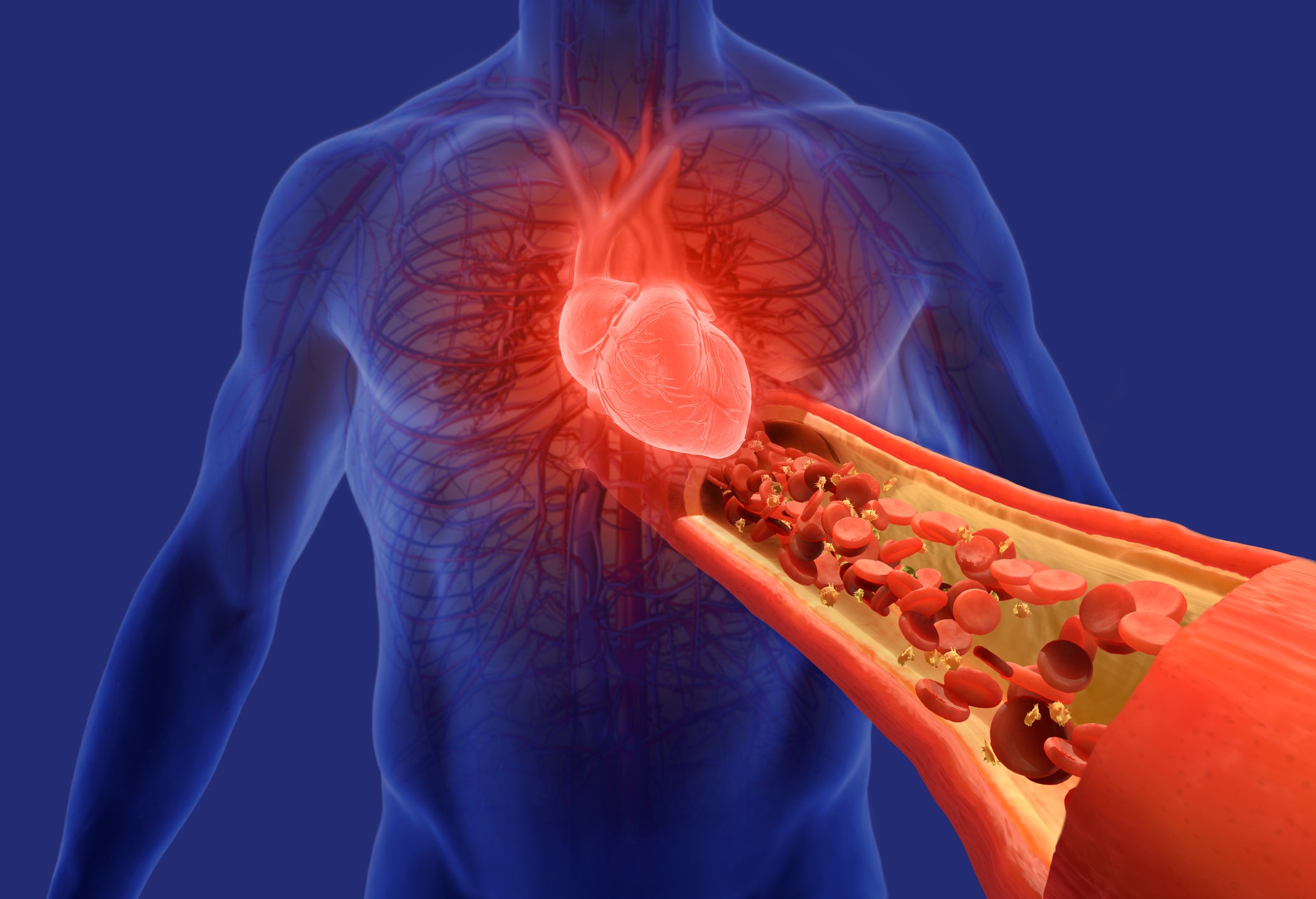
Pressure Reduction and Electronic Support Systems (PRESS)
| Summary | This multi-center randomized controlled study focuses on two areas, both of which include former NFL players who have uncontrolled hypertension. One group will undergo the intervention with the Remote Hypertension Program and the other will undergo standard care. After six months, participants randomized to the control group will be offered the opportunity to undergo the intervention as a cross over. This study will also include wearable technology to monitor activity and sleep data with the effects of the intervention. The first step for our study team to consider your participation is to fill out our contact form. |

Brothers Questionnaire
| Summary | Brothers of former players who have completed our Health Check-In Questionnaire are invited to participate in the Brothers’ Questionnaire. Brothers are eligible for this study if they are over the age of 18 and have not played football past college. The questionnaire takes approximately 30-45 minutes to complete and includes questions about lifestyle, health, and athletic history. Comparing the experiences of players and their brothers who did not play professional football will help us to disentangle the biological, social, and football-related factors that shape men’s lives. |
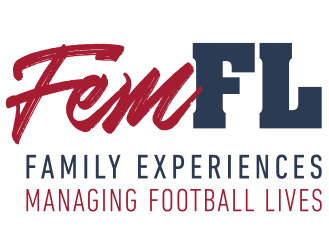
Family Experiences Managing Football Lives (FEM-FL)
| Summary | FEM-FL is a pilot research initiative designed to study the health and wellness of individuals currently partnered with former or active football players. This remote, web-based study is based on the premise that an NFL career can affect the lives of families, and the physical and mental health of NFL player partners, as well their educational and career trajectories. |
Early Aging in Former NFL Players

Ongoing Research
| Summary | In conjunction with anecdotal evidence from former players and their clinicians, preliminary data collected by our researchers suggest that NFL players age prematurely physically and psychologically. This can lead to significant reductions in their quality of life, healthspan (years spent without disease or disability), and lifespan (length of life). The primary objective of our early aging program is to characterize the magnitude, clinical relevance, and underlying mediators of early aging in former NFL players and to develop interventions. We are also studying multi-organ premature aging to establish biomarkers that identify early aging phenotypes in former NFL players. The first step for our study team to consider your participation is to fill out our contact form. |

Health Biodata Initiative
| Summary | Former players who have participated in our first Health and Wellness questionnaire (Q1) are invited to contribute biosample(s) to our Health Biodata Initiative. Biospecimen collection is vital for us to examine the health outcomes and long-term impacts of a career in football. We will measure cardiovascular, metabolic, inflammatory, and endocrine biomarkers to gain insight into the prevalence of related conditions in a population of former professional football players. This research will help us understand the underlying biological factors that influence player health. We have worked with SiPhox Health, Inc., a company that offers comprehensive at-home blood testing kits to measure and report on key health biomarkers. With SiPhox Health, Inc., we have created a system to secure and anonymize participants’ samples to maintain confidentiality throughout the study. Former players who participate will receive key results, including cardiometabolic, inflammatory, and hormone-related health information which they can share with their healthcare providers. The first step for our study team to consider your participation is to fill out our contact form. |
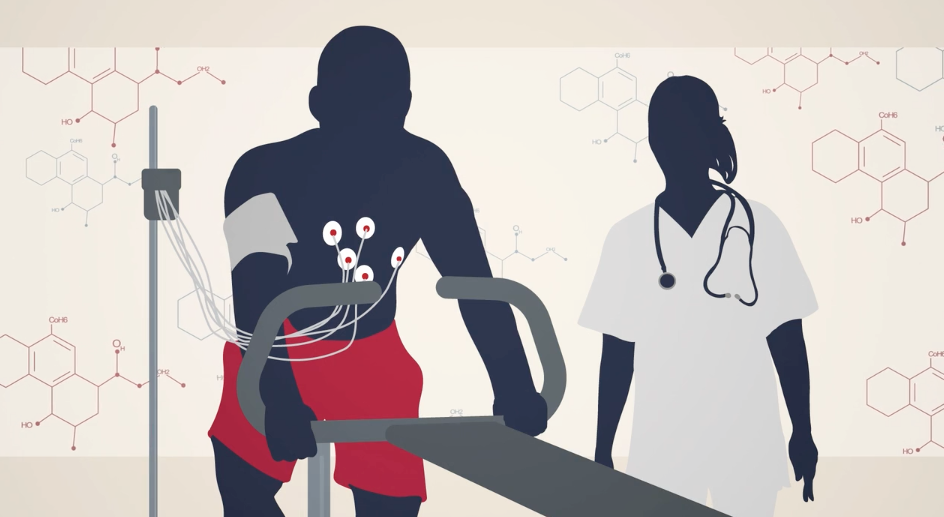
Early Aging In-Person Assessments
| Summary | From 2017 to 2021, more than 100 former NFL players came to Boston to undergo a series of clinical assessments as part of our original In-Person Assessment (IPA) study. We have since heard from our player advisors and research participants that they often feel older than their biological age. These remarks, combined with a review of aging literature in athletes, has led our team to conduct a similar in-person protocol with an emphasis on early aging hypotheses. As part of this project, we will also be enrolling non-football playing brothers and friends of former NFL players to serve as a comparison group. This Early Aging IPA will focus on physiological assessments that stress human body systems and will include assessments in sleep, physical, neurocognitive, and cardiovascular function. The first step for our study team to consider your participation is to fill out our contact form. |
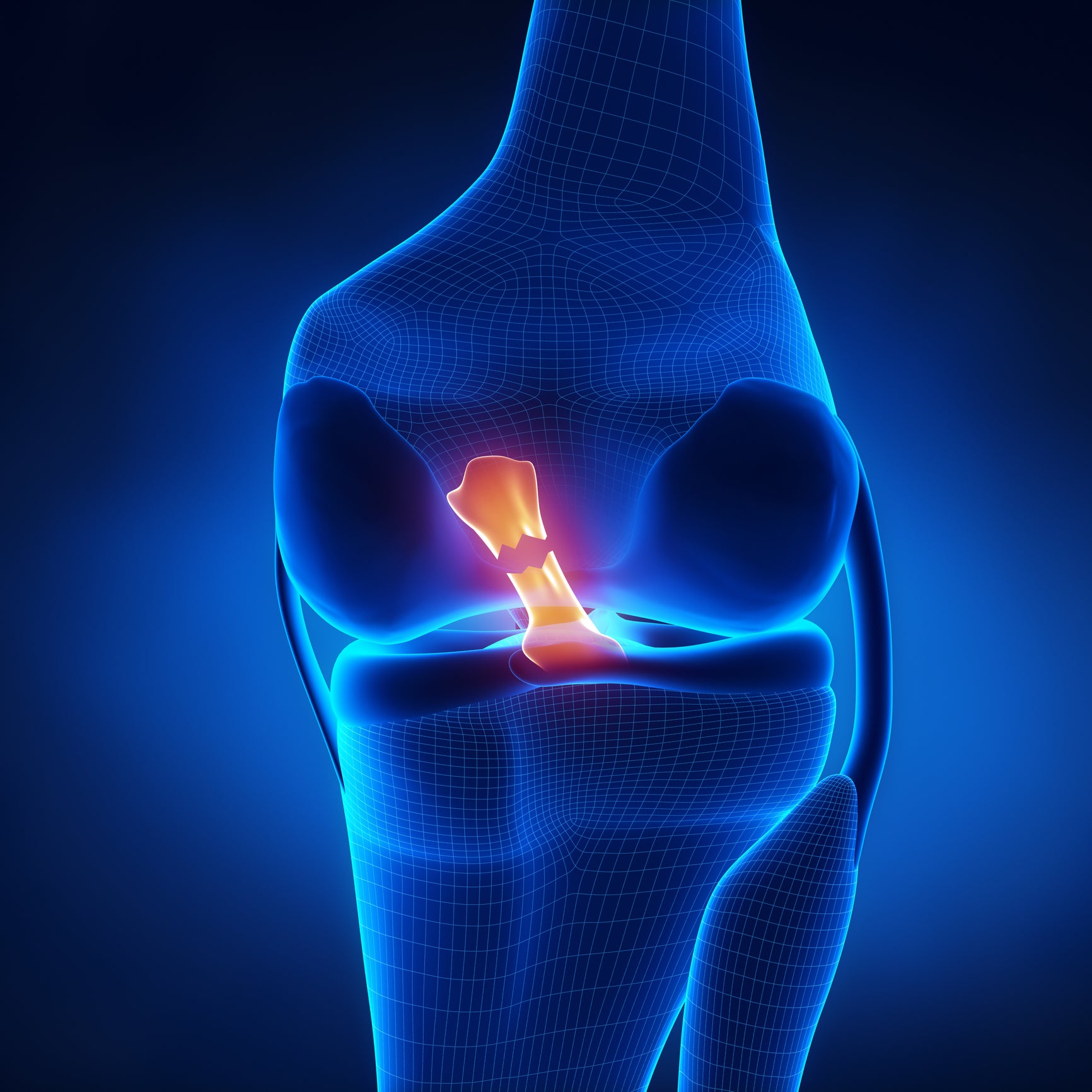
Shockwave Intervention for Management of Post-Traumatic Knee Osteoarthritis
| Summary | This intervention study investigates methods to improve function and pain reduction following ACL injury for those who have symptomatic post-traumatic osteoarthritis of the knee. This project builds on previous work that documented benefits of shockwave therapy (SWT) in the management of osteoarthritis. We have designed a randomized controlled trial to evaluate the effects shockwave therapy (SWT). We hypothesize that compared to sham or placebo condition, participants randomized to the SWT intervention will have improved function and increased pain relief with greatest gains observed in the control treatment cohort. The first step for our study team to consider your participation is to fill out our contact form. |
Collaborations

University of Pittsburgh Brain Health Initiative (BHI) Collaboration
| Summary | The Football Players Health Study at Harvard University is collaborating with the University of Pittsburgh Brain Health Initiative to strengthen and support active projects at both institutions. This partnership will accelerate discoveries about the long-term impact of contact sports and brain trauma on players. Initial collaborative work has aligned several planned BHI assessments with Football Players Health Study In-Person-Assessments (IPA) for future analyses of common measures. The Football Players Health Study team will lead recruitment outreach to former players. |
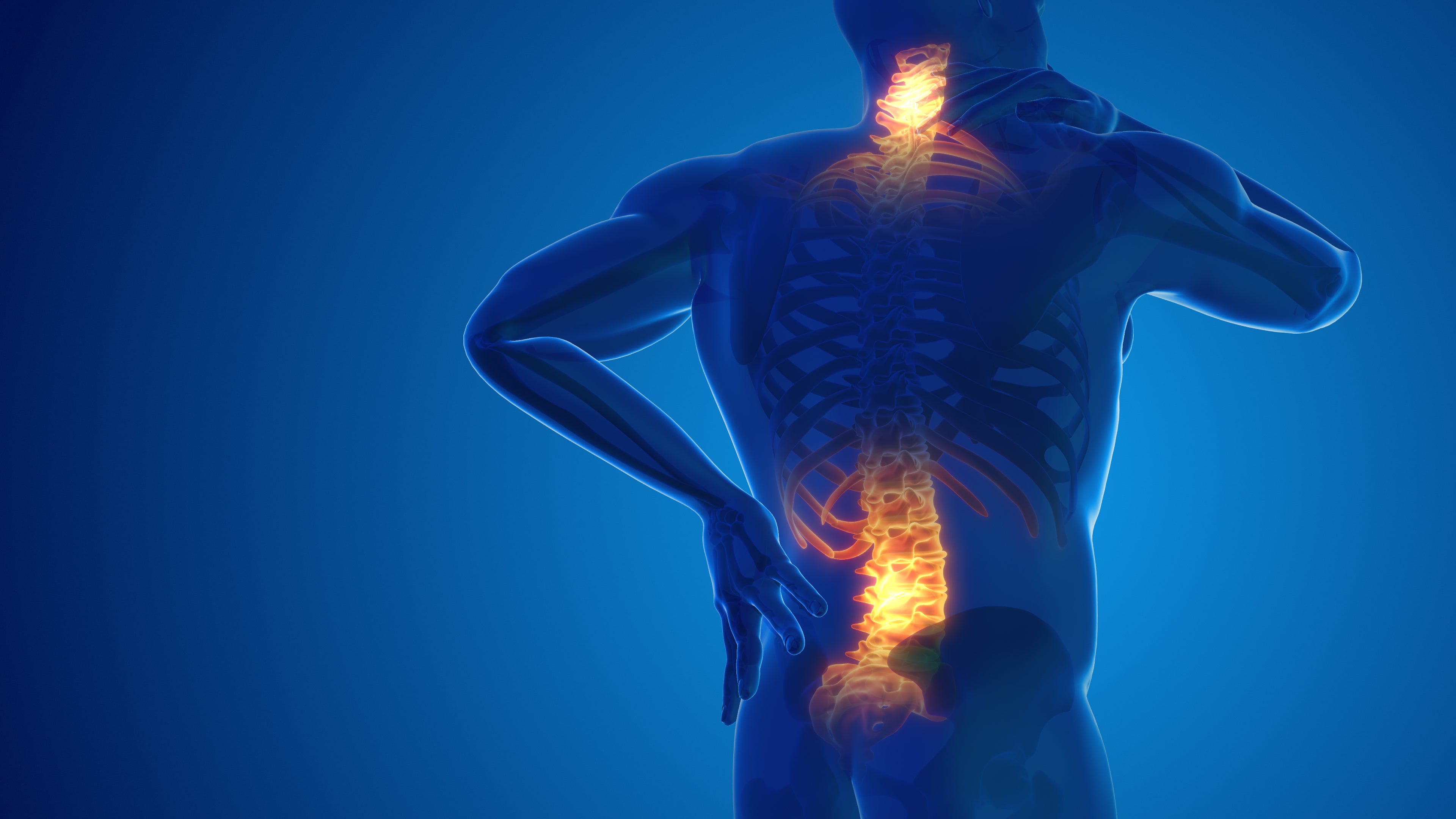
Characterizing Oxidative Stress and Inflammation in American-Style Football Players
| Summary | Chronic inflammation is a well-established cause and/or contributor to multiple forms of chronic disease. Oxidative stress (OS), the imbalance between the impact of circulating free radicals and counter-regulatory antioxidant molecules, is a critical trigger for inflammation. While OS develops transiently after acute bouts of exercise and may drive training adaptations, unresolving OS and chronic inflammation may negatively impact both short-term athletic performance and long-term health. This project aims to characterize OS and inflammation among healthy active NFL players, former NFL players, and among individuals with and without key chronic afflictions that highly impact former NFL players. We anticipate that this initial work will catalyze the subsequent exploration of intra- and post-career interventions geared toward minimizing OS, and that these will ultimately optimize on-field performance and post-career, long-term health. Our established relationship with Orreco, an industry partner with expertise in bio-analytics for elite athletes, will uniquely facilitate the critical work needed to characterize OS kinetics and the role of OS in the development of both adaptive and maladaptive phenotypes. The first step for our study team to consider your participation is to fill out our contact form. |
